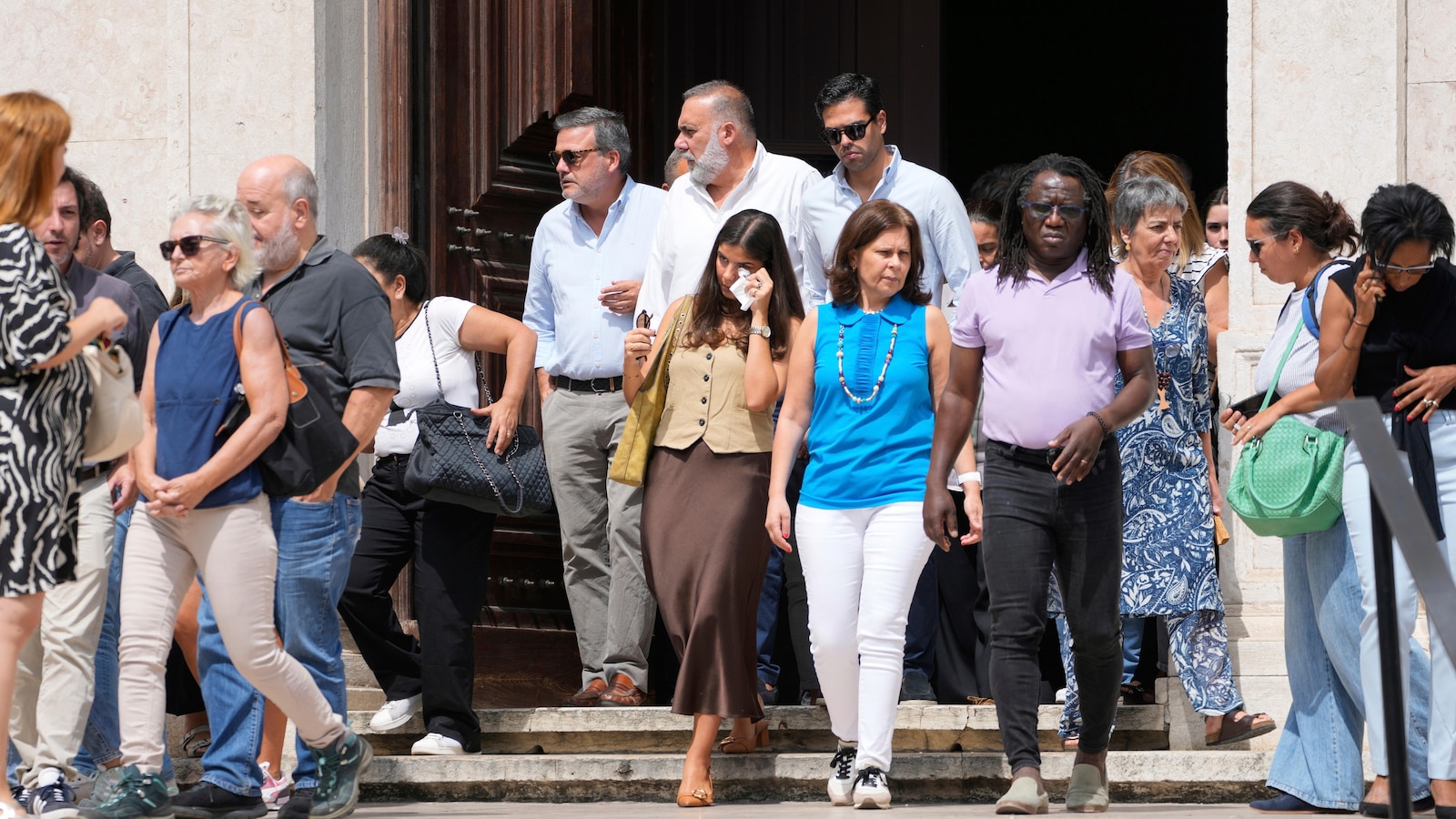ARTICLE AD BOX
Alice Cuddy, Jessica ParkerReporting from Lisbon
As Sonia Silva prepared to leave work on Wednesday evening, she was asked by a colleague to help with a quick task.
It meant she missed her regular funicular ride down the hill with a work friend on their commute home from the office in the centre of Lisbon.
When she arrived at the stop a short while later, the funicular had crashed and her friend was dead.
"When I got there, it was a tragedy," she said.
Sixteen people were killed on Wednesday evening in Lisbon when its iconic 140-year-old Glória funicular derailed and crashed into a building. The Portuguese prime minister has described it as "one of the biggest human tragedies of our recent history".
Many of those killed were foreign nationals, including three British people whose identities have not yet been announced. Police say five killed were Portuguese - and four of them worked at the Santa Casa da Misericórdia charity, located at the top of the hill.
A service was held on Friday in a church next to the charity's headquarters, honouring the workers killed in the crash. The service was crowded, with people filling the aisles and any other available space.
As they left, colleagues wept and supported each other as they tried to make sense of what had happened. Several told the BBC that they regularly used the funicular as part of their commute.
Sitting on a bench outside, Sonia said she had worked at the charity for eight years and used the funicular each day.
"I can't express [how I feel] - it's very difficult. I am grateful but at the same time I'm very, very angry because my colleagues and lots of people died," she said.
She said she would travel to and from work each day with her colleague Sandra Coelho.
"I was very fond of her because I always took the funicular with her - going home and in the morning. It's very difficult because I'm not going to see her anymore," she said through tears, as colleagues comforted her.
On their commute, she said the two women would gossip and talk about their days.
"We'd talk about colleagues, work, everything. We'd meet in the morning and when we finished," she said.
Others around the church also mourned the loss of friends and tried to process what had happened.
"It's awful, we are devastated. It's difficult to work at the moment," said Lurdes Henriques.
"We're always thinking about our colleagues and wondering 'did they suffer?' They could be here with us now. We are deeply, deeply sad."
"It could have been any one of us - all of us used this kind of transport and we felt very confident in it," said Tania, another worker at the charity.
Rui Franco, a city councillor whose close friend and former colleague Alda Matias was killed in Wednesday's crash, said he was in shock.
"She was about my age. She had a family, children and I can't imagine if it was me what would be happening to my family. She was a great person… with a very solid way of acting in the world," he said.
Mr Franco said he was "already angry" when he first learned of the fatal crash, "then when I understood I knew the people involved, the rage [became] overwhelming".
While an investigation into the cause of the crash is under way, there was much speculation among mourners.
"It was always overcrowded," one said, while another blamed poor maintenance.
The leader of the rail workers union Fectrans claimed that some workers had complained that problems with the tension of the cable that hauls the carriages had made braking difficult.
"Even planes fall out of the sky sometimes. Accidents happen," said another woman.
Several told the BBC that whatever the cause, they could not imagine using the funicular again.
"I've told everyone I'm not going to use it anymore," said Sonia before heading back into the office, flanked by work friends.

 2 hours ago
7
2 hours ago
7








 English (US) ·
English (US) ·